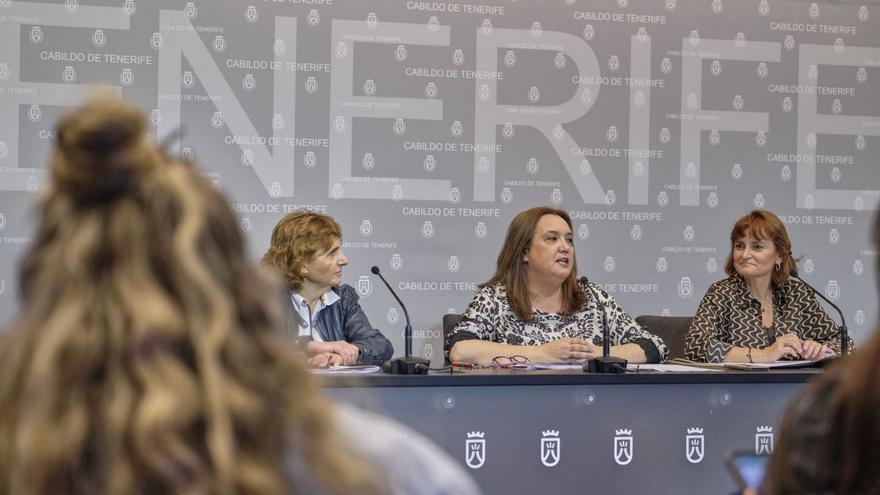
46% of the places to access a job offered by the public administration for people with disabilities – from 33% diagnosed – remain vacant. Either they go to the free turn of opposition or to the next call. The Council of Tenerife promotes a new service, through the Insular Society for the Promotion of Persons with Disabilities (Sinpromi), which aims to reduce that average, similar in all administrations. For it establishes a coordinated planning of information, training and accompaniment to people, entities and public companies.
The Vice President of Sinpromi and Island Councilor for Social Action of the Cabildo de Tenerife, Marián Franquet, explains that this new program will focus especially on helping people with intellectual disabilities, a group in which there are 1,078 registered applicants for employment out of a total of 7,187 with disabilities.
The service also includes advice to public administrations to adapt the selection processes and guarantee the correct integration of these people in their new job.
Franquet emphasizes that this project, unique in Canary Islands, raises the start-up of a specialized training classroom, among other supports. The presentation was also attended by the insular director of Innovation Planning and Social Action Strategy, Ascensión Sioni Bacallado, and the head of the Training area of Sinpromi, Inés López.
Marián Franquet values: “We intend to go one step further to guarantee equal opportunities and the social integration of this group.” To this end, it considers it key to “inform, advise and offer people with disabilities the necessary training so that they can attend public tests”. With two objectives: cover the percentage of places reserved for them and that they have access to a stable and quality job.
The counselor recalls that according to current regulations, 7% of the public job offer places must be reserved for people with disabilities and of this percentage, 2% must be covered by intellectual disability. “However, Franquet emphasizes, today not only is this percentage not reached, but the places offered are not covered either.” She hopes that the situation can be reversed “with comprehensive and personalized support for people with disabilities who want to oppose,” she adds.
For his part, Ascensión Bacallado explains that, in addition to responding to the added difficulties that people with disabilities have to, for example, access public employment information or complement registration, the new service also offers advice to public administrations for, among other things, adapt the selection processes or guarantee the correct integration of people with disabilities in their job, once they have obtained the position.
The island director highlights that its implementation is part of the commitment that the Cabildo maintains with the full inclusion in society of the most vulnerable people through the Sinpromi entity.
In this context, it is worth noting that in the last four years alone, 2,216 contracts for people with disabilities have been formalized in companies on the Island, of which almost half correspond to those with special integration difficulties, such as intellectual disabilities and mental health problems.
How to access the service
The person in charge of the Training area at Sinpromi, Inés López, relies on fictitious examples that are perfectly possible in reality, such as those she names as María and Luisa.
López points out that people with disabilities interested in this service can contact the entity today, by phone 922 24 91 99. From that moment on, they will be offered timely information about the selection processes that are open and more closely match your professional profile. They will also be given support in their registration, in addition to offering them specific guidance on the training actions that are scored in the merit contest.
In the case of people with intellectual disabilities, they will also be helped to prepare the syllabus for the oppositions, with adapted training courses, and a support person will be made available to each of the participants when they join. to your job.
The period for enrolling in the first courses adapted to teach to cover Ordinance and Complementary Support Tasks is now open.
“What is not known does not exist”, says the counselor Franquet who makes it clear that “we must start with ourselves; that is, by the Cabildo and its dependent companies. It does not have an exact quantification of the number of people with disabilities in the workforce, but it does have the percentage of those who have access to the reserved places, which is similar to the general average.
One phrase defines what drives the initiative: “Guarantee equal opportunities for all people, including those with disabilities.” Also as skilled workers “without the stereotypes of job roles.”
















